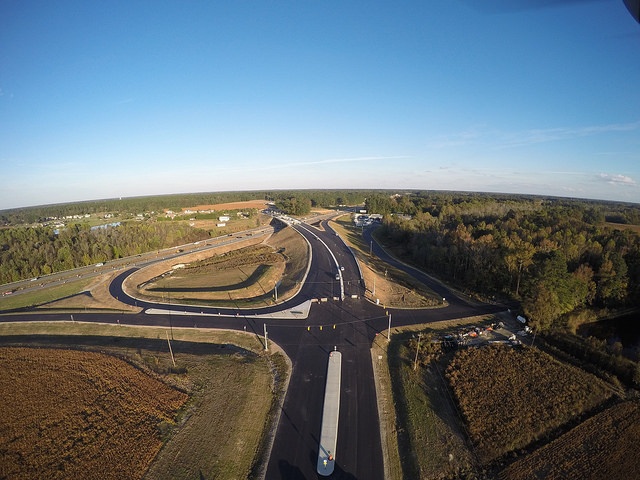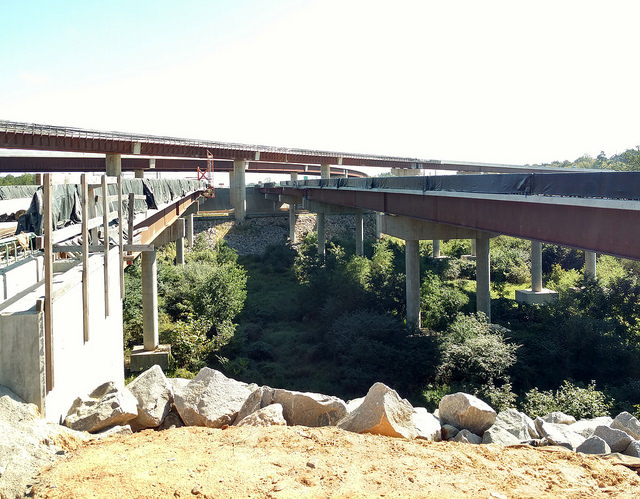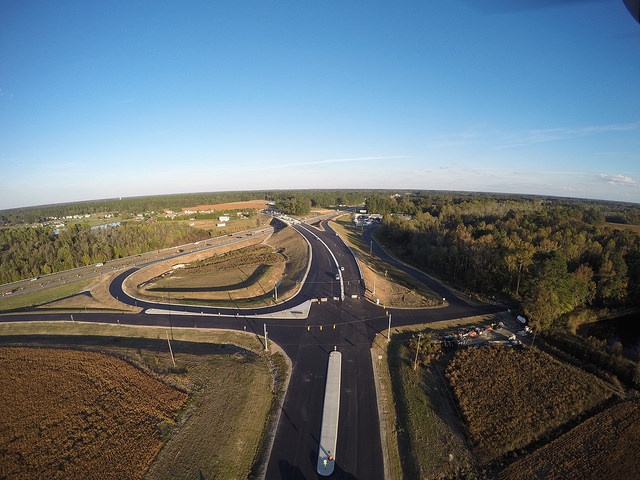

Fayetteville Outer Loop Project. Photo: NCDOT
Leading economists around the world fervently advocate for transportation infrastructure investments in order to preserve national economies.
In its report "Strategic Transport Infrastructure Needs to 2030," the Organisation for Economic Co-operation and Development (OECD) argues: “Major international gateway and corridor infrastructures such as ports, airports, and key rail routes are crucially important to the exports and imports of all the products and resources of modern-day economies. These infrastructures will become even more important in the future.”
And while we are largely in agreement that transportation infrastructure is a key component to successful business and economies, the American Society of Civil Engineers (ASCE) reports that one in nine U.S. bridges are structurally deficient, road congestion costs American drivers $101 billion annually in wasted time and fuel, and airport delays present a $22 billion drag on the economy.
In fact, the World Economic Forum reports that 24 countries have better transportation infrastructure than the United States.
What does transportation infrastructure mean to a business owner considering a relocation? Time and money.
Business owners considering a relocation should ask two critical questions:
How long will it take to receive the goods and services
I need to produce my products?
How long will it take to get my products to market?
States like North Carolina, currently ranked #2 nationally for business by Forbes, understand how transportation infrastructure affects the success of its businesses.

U.S. 70 interchange at U.S. 70 Business. Photo: NCDOT
In 2014, then Governor Pat McCrory released a 25-year Vision for North Carolina, "Mapping Our Future." Recognizing the disparate landscape and economic drivers of the eastern, western, central, and coastal regions of the state, Governor McCrory presented a transportation infrastructure plan for each, which together will assure businesses will have the ability to move and receive goods effectively and efficiently now and into the future.
North Carolina currently maintains the nation’s second largest highway system and the second largest ferry system in the country. There are thousands of miles of rail lines and bicycle and pedestrian routes, 72 publicly owned airports, 99 public transit systems and two ports.
In 2014, McCrory identified more than $70 billion in infrastructure needs over the next 10 years with only $1.5 billion in dedicated funding. As a result, he proposed key initiatives such as a passenger rail system, investments in maintenance, optimizing public-private partnerships, and taking advantage of low interest rates to fund key projects.
The state also enacted a Strategic Transportation Investments law, which prioritizes Highway Trust Fund money to schedule nearly 370 projects over the next 10 years.
In February, 2017, Governor Roy Cooper released his list of shovel-ready infrastructure projects.
It means that the state of North Carolina is not only aware of its transportation infrastructure needs, it has developed innovative, thoughtful plans to address them.
As the report concludes: “With a new data-driven law and strategic focus through this 25-year vision, North Carolina is poised to be a global economic leader by using our transportation network to create jobs, grow the economy and improve the quality of life for all of our citizens.”
We encourage you to review North Carolina’s "Mapping Our Future" report, and see what transportation infrastructure improvements we’re making in the region your business will thrive in.
These Stories on Transportation
No Comments Yet
Let us know what you think